Civil Liberties, Criminalizing Dissent, Human Rights, NSA Spying, Surveillance, Truth to Power
Podcast: Play in new window | Download
Host Updates:
- In Memoriam – Perry Rosenstein Law and Disorder warmly remembers Perry’s legacy. He passed on April 3rd, 2020 in Teaneck, New Jersey.
- Navy Secretary’s Flight To Aircraft Carrier To Bash Fired Captain Cost Taxpayers $243,000
- 10,239 Elderly Prisoners in New York State – Governor Cuomo’s Office – 518-474-8390
—-
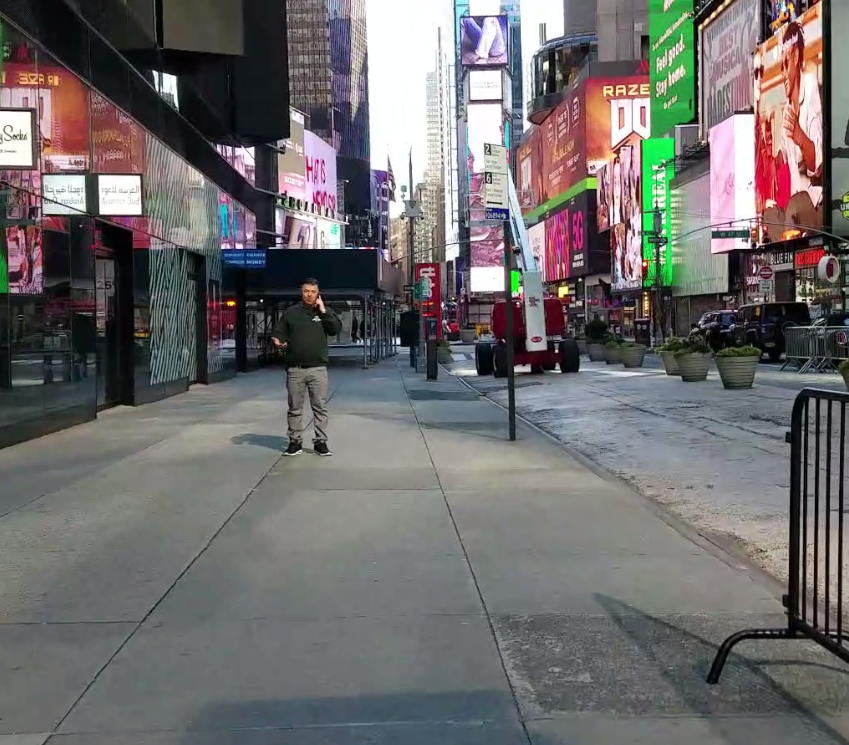
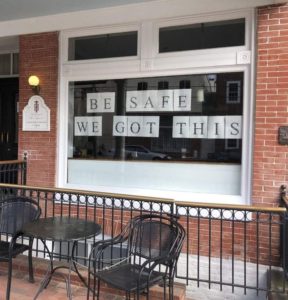
Reevaluating “Normal” Once Again
We are into a new economic and political period.The economic crisis has been looming and was predicted. But the COVID-19 pandemic triggered it. There will be no going back to “normal.“
Arundhati Roy has written that “historically pandemics have forced humans to break with the past and imagine the world anew. This one is no different. It is a portal, a gateway between one world and the next.”
As Reverend William Barber recently wrote, “this virus is teaching us that from now on living wages, guaranteed healthcare for all, unemployment and labor rights are not far left issues, but issues of right versus wrong in life versus death.“
That there will be changes when this crisis has passed is a certainty. The pendulum will not swing back to what was called “normal.” What is uncertain is what kind of changes will take place and will they be done to us or by us and for us.
Guest – Phyllis Bennis is a fellow of the Institute for Policy Studies, where she is she is the director of the New Internationalism Project and works on anti-war, US foreign policy and Palestinian rights issues. She has worked as an informal adviser to several key UN officials on Palestinian issues. Her books including Calling the Shots: How Washington Dominates Today’s UN, and Understanding the Palestinian-Israeli Conflict.
—-
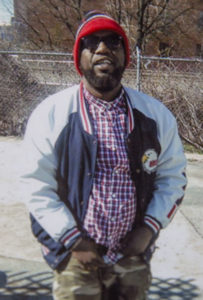
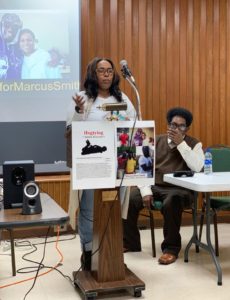
A Victory In The Greensboro, North Carolina Case of Marcus Deon Smith
On March 25, 2020 North Carolina federal judge Loretta Biggs allowed a civil rights lawsuit over the hogtying death of Marcus Deon Smith to move forward.
Smith, a young black man, was killed by eight Greensboro police officers and several emergency medical technicians during the 2018 North Carolina Folk Festival.
Hogtying is when a persons’ hands and feet are tied together behind their back. Smith’s hogtying was ruled a murder by the state medical examiner.
The Smith family is being represented by North Carolina attorney Graham Holt and Ben Elson and Flint Taylor of the PLO, The People’s Law Office, based in Chicago.
“This is an outstanding and long-awaited victory for the Smith family“, said Taylor. “It recognizes that the use of brutal hogtying of defenseless persons is a clear violation of their constitutional rights and that the Greensboro police were woefully and inadequately trained in using restraints which were a direct cause of Marcus‘s death.“
Marcus‘s mother Mary Smith thanked the judge for allowing the case to go forward. His father said in tears that he will forever be haunted by seeing his son taking his last breath on the street pavement.
Guest – Attorney Flint Taylor, one of the premier police abuse lawyers in the country. Attorney Taylor is the author of the recently published book “The Torture Machine: Racism and Police Violence in Chicago.“ Flint Taylor, welcome back to Law And Disorder.
——————————–

——————————–
CIA Sponsored Terror, Civil Liberties, Habeas Corpus, Human Rights, Political Prisoner, Prison Industry, Supreme Court, Surveillance, Truth to Power
Podcast: Play in new window | Download
Hosts Updates
- Chronic Underlying Conditions: Vunerability To Covid-19
- 10,239 Elderly Prisoners in New York State – Governor Cuomo’s Office – 518-474-8390
- FOIA Suspended
—-
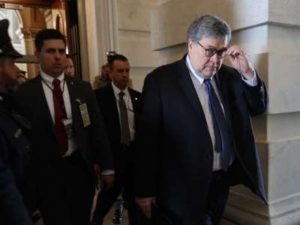

Abuse Of Emergency Powers, The U.S. Constitution And Habeas Corpus
The Department of Justice is now seeking to exploit the coronavirus calamity to get Congress to give it permission to pick up and detain people indefinitely.
At this point the American people have a constitutional right, if arrested, to be brought before a judge and informed of the charges against them so that they may defend themselves. This is known as the right of habeas corpus. It is a right that has its origins in the Magna Carta, the great charter, a British law that goes back to the 13th century. The right of habeas corpus is written into the American Constitution and can only be suspended by Congress.
Historically both the American and the German fascist government led by Adolf Hitler have used crises and the fear that crises generate in the population to expand their powers.
Abraham Lincoln suspended habeas corpus during the Civil War. FDR put 110,000 American citizens of Japanese origin into concentration camps during World War II.
In Germany, Adolph Hitler, who was legally appointed chancellor, used the shock of the Reichstag fire, which had burned down the German parliament, to get his Enabling Law passed. This enabled Hitler, with the support of German big business, to make laws on his own, bypassing the legislature.
What dangers do we face with Donald Trump as president? What does it mean to suspend the right of habeas corpus for the American citizens who oppose Trump and his big business backers.
Defend.Wikileaks.org
Guest – Attorney Marjorie Cohn, professor emerita at Thomas Jefferson School of Law where she taught for 25 years. The former president of the National Lawyers Guild and criminal defense attorney is a legal scholar and political analyst who writes books and articles, and lectures throughout the world about human rights, US foreign policy, and the contradiction between the two. She writes weekly articles for Truth out in the series Human Rights and Global Wrongs. She is currently taking a leading role in the defense of Julian Assange. She has testified before Congress and debated the legality of the war in Afghanistan at the prestigious Oxford Union. MarjorieCohn
—-
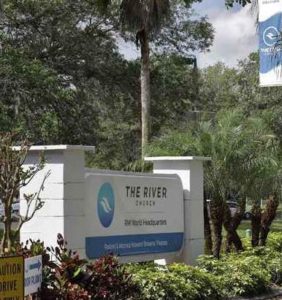
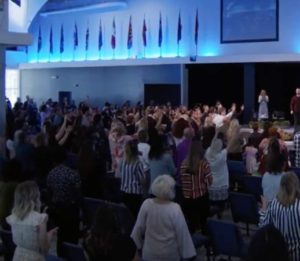
The Religious South, and Religious Exemptions to Public Health Directives
Last week sheriffs arrested Rodney Howard-Browne, the head of the River at Tampa Bay church in Florida for ignoring local orders against mass gatherings due to the COVID-19 pandemic and for showing “reckless disregard for human life.”
Hillsborough County Sheriff Chad Chronister said he had no choice but to take action against the pastor. “His reckless disregard for human life put hundreds of people from his congregation at risk and thousands of residents who may interact with them this week.” The Sheriff said his office had direct contact with the church, telling it not to pack its pews. Instead he said, the Pastor was encouraging his large congregation to meet at his church.”
Howard-Browne said his church has an absolute, constitutional right to gather for worship. He told his congregation that the church is an essential service.
But religious exemptions during the pandemic will only worsen it and claim more lives. Yet that’s precisely what government officials are doing—ignoring public health warnings and refusing to call on houses of worship to close. Establishing religious exemptions—in this case, by freeing houses of worship from public health order compliance—will only result in more cases of COVID-19 and greater numbers of death cases.
Guest – Attorney David Gespass is a former president of the National Lawyers Guild. He practices law in Birmingham, Alabama.
————————

————————
CIA Sponsored Terror, Civil Liberties, Human Rights, Prison Industry, Surveillance, Truth to Power
Podcast: Play in new window | Download
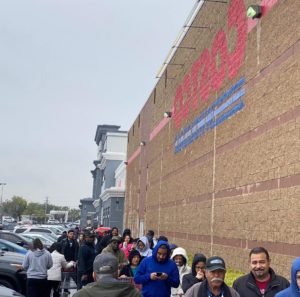

Now Is The Time To Fundamentally Transform America
Doug Henwood wrote in a Jacobin magazine article last week that “. . . things could get very ugly, but it is also an opportunity to emerge from this crisis a better country.“
In his article Henwood articulates a vision, “a vision of solidarity and mutual care.“ He believes that millions of lives depend on that. LBO-News.com
Guest – Doug Henwood, his fields of expertise are politics, economics, and finance. He is the publisher of “The Left Business Observer.” Henwood has written four books. His articles have appeared in “The Nation”. the “Los Angeles Times, and “the Guardian“. He hosts the radio show Behind the News each week on the Pacifica station KPFA in Berkeley.
—-
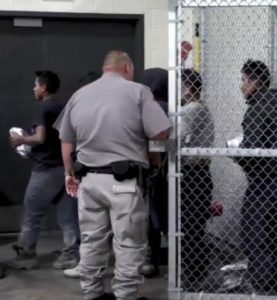
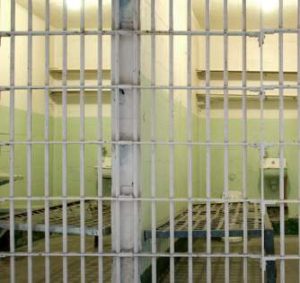
Aging Prisoners And Prisoner Release During Pandemic
Last week, New York City jails were among the country’s most infected by the virus so far, with at least 38 people testing positive at Rikers Island. Another inmate, became the first in the country to test positive in a federal jail.
In a letter to New York’s criminal justice leaders, Board of Correction interim chairperson Jacqueline Sherman described a jail system in crisis. She said that 12 Department of Correction employees, 5 Correctional Health Services employees, and 21 people in custody at Rikers and city jails had tested positive for the coronavirus.
And at least another 58 were being monitored in the prison’s contagious disease and quarantine units, she said. Across the nation, several large county and municipal jurisdictions have freed thousands of low-risk inmates from jails, including seniors and those in poor health.
New Jersey plans to release as many as a thousand people from county jails, including inmates jailed for probation violations and those sentenced for low-level offenses. Mayor Bill de Blasio said last week that New York City may release more than 200 inmates. Los Angeles County and Ohio’s Cuyahoga County also have released prisoners.
Prisoner advocacy groups in more than a half-dozen states, including Texas, New York, Illinois, Pennsylvania, Indiana and Michigan, continue to urge governors to release state prisoners, especially elderly inmates, through compassionate release or medical furlough.
Guest – Victor Pate, the New York statewide organizer for the Halt Solitary campaign. That stands for humane alternative to long-term isolated confinement.
——————————

——————————
Civil Liberties, Habeas Corpus, Human Rights, NSA Spying, Supreme Court, Surveillance, Truth to Power
Podcast: Play in new window | Download
Update:
- Hosts Discuss Civil Liberties Amid Pandemic
—-
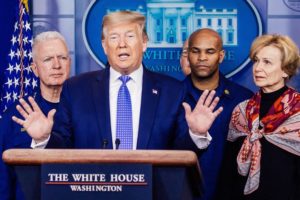
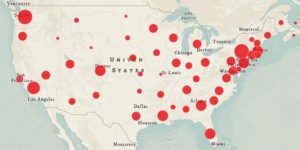
United States Executive Authority Declares Emergency Powers
The last point President Trump’s former attorney Michael Cohen made when he testified last year before Congress was that Trump would never leave office voluntarily. With the pandemic of Covid-19 virus upon us, Trump has the perfect excuse. Last week he declared a state of national emergency. This gives him more than 100 additional powers. He can shut down the Internet, he has already banned gatherings of more than 10 people, and he can send in troops anywhere in the country.
What is the current state of our civil rights and civil liberties?
Guest – Stephen Rohde is a constitutional scholar, lecturer, writer, political activist and retired civil rights lawyer. He is a former President of the ACLU of Southern California and Chair of the ACLU Foundation of Southern California. Mr Rohde has served on the Board of Directors of Death Penalty Focus and was a founder and Chair of Interfaith Communities United for Justice and Peace. He is a past chair of Bend the Arc: a Jewish Partnership for Justice. Mr. Rohde is the author of two books American Words of Freedom: The Words That Define Our Nation and Freedom of Assembly, and co-author of Foundations of Freedom: A Living History of Our Bill of Rights. He has written for American Prospect, Truth Out, Huffington Post, and the LA Times and is a frequent contributor to the Los Angeles Review of Books
—-
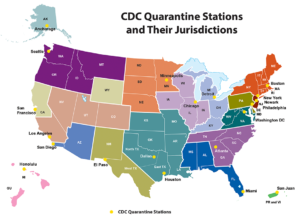

United States Executive Authority in Declaring Emergency Powers
U.S. presidents have the discretion to declare a “national emergency.” As soon as he does, he can sidestep many existing limits to presidential authority. In fact, 100 or more special provisions become available to him. Some provide reasonable responses to real emergencies, while others seem to bolster the power of a so-called unitary executive who wants to amassing or retain power. The president can activate laws allowing him to, for example, shut down many kinds of electronic communications inside the U.S. or to freeze Americans’ bank accounts. Other powers are available without a declaration of emergency, including laws that allow the president to deploy troops inside the country to subdue domestic unrest.
The rationale for having emergency powers is simple: The government’s ordinary powers may not be enough in times of crisis, and amending the laws to provide greater ones would take too long. Emergency powers are intended to give a temporary boost until the emergency passes or there is time to change the law through the regular legislative process. The problem comes when presidents don’t have the best interest of the country in mind.
Guest – Andrew Boyd, Counsel in the Brennan Center’s Liberty and National Security Program. Andrew spent 7 years prosecuting senior Khmer Rouge leaders on behalf of the UN for war crimes, crimes against humanity and genocide. He also worked on cases resulting from the 1994 Rwandan genocide at the International Criminal Tribunal for Rwanda.
————————————————

————————————————
CIA Sponsored Terror, Civil Liberties, Criminalizing Dissent, Human Rights, Prison Industry, Supreme Court, Surveillance, Torture, Truth to Power
Podcast: Play in new window | Download
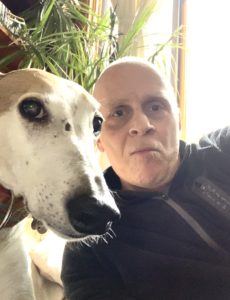

Basic Legal Rights For Animals: Activists and Advocates
Discussions over whether animals are sentient beings, capable of feeling pain, pleasure or suffering, date back as far as ancient thinkers such as Plutarch, Hippocrates and Pythagoras. They all advocated for the fair treatment of animals. The term animal rights stands for the proposition that non-human animals have the right to be treated, not as property, but rather as the individuals they are, with their own desires and needs.
Animal law is now widely taught in law schools across North America. There are 167 law schools in the U.S. and Canada, and 11 in Australia and New Zealand, teaching courses in animal law. Several legal scholars support extending basic legal rights and to personhood to non-human animals.
Critics of animal rights argue that nonhuman animals are unable to enter into a social contract, and thus cannot have rights. Another argument is that animals may be used as resources as long as they don’t undergo unnecessary suffering.
Certain forms of animal rights activism, such as the destruction of fur farms and animal labs by the ALF or Animal Liberation Front, have also attracted criticism, and prompted Congressional reaction by enacting of harsh laws allowing these activities to be prosecuted as terrorism. These laws include the Animal Enterprise Terrorism Act.
Guest – Attorney Tamara Bedic, chairperson of the National Lawyers Guild Animal Rights Project. She is a graduate of the University of Virginia School of Law and a masters degree from Columbia University-NY University. Tamara practices employment law with a focus on women and harassment in the workplace.
Guest – Phillip Murphy, Philip Murphy is a writer and social justice activist based in the Greater New York City area. He is a co-founder of the Buddhist Action Coalition NYC, a pan-Buddhist social justice organization, and is also a co-founder of the New York chapter of UK-based Animal Rebellion, a global climate and animal justice movement. His recent article, Why Animal Justice is Crucial in Addressing the Climate Emergency was published at the independent global media platform openDemocracy.net. SHAC 7 Documentary
——————————–

——————————–
Civil Liberties, Human Rights, Surveillance, Truth to Power, War Resister
Podcast: Play in new window | Download
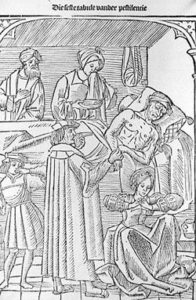
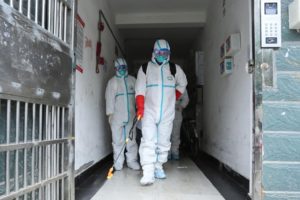
COVID-19 Virus And History of Quarantine
“Quarantine” is a state, period, or place of isolation in which people or animals that have arrived from elsewhere or who have been exposed to infectious or contagious disease are placed.
As Law & Disorder taped this show in early March 2020, thousands of people around the globe are being quarantined as governments rush to keep the COVID-19 virus from spreading. In China, for example, thousands were forced into mass quarantine centers. And entire cities and towns in Italy were put on lock-down, sending an estimated 100,000 persons into quarantine.
In the United States, quarantines are being readied for some first responders. Two dozen emergency workers are being monitored for possible exposure to the coronavirus. And 27 firefighters and two police officers were quarantined in Washington State.
Today on Law and Disorder we’ll examine the civil liberties aspects of quarantines and other government responses to pandemics.
The word quarantine, and the practice, dates back to the Middle Ages. It was first used in English in 1617 to refer to the 40 days a ship suspected of carrying a contagious disease was detained offshore in isolation.
But the first instance of the institutionalized practice of quarantine actually occurred in the 14th century when the Bubonic plague, also referred to as Black Death, devastated Europe from 1347 to 1352, killing approximately 20 million people.
Authorities in Venice were the first to formalize the protective action after the plague began spreading there in 1347. Ports were closed to ships and travelers who had to spend 40 days in isolation.
In the early days of the United States local and state jurisdictions were responsible for protection against contagious diseases. After a 1793 yellow fever epidemic struck Philadelphia and killed 5,000, the city created a 10-acre quarantine station called the Lazaretto along the Delaware River.
With outbreaks of yellow fever, Congress passed the National Quarantine Act in 1878 marking the federal governments involvement with quarantine activities. The quarantine system was fully nationalized by 1921, according to the CDC.
Guest – Professor Wendy Parmet from Northeastern Law School is a leading expert on health, disability and public health law and directs the law school’s Center for Health Policy and Law and its JD/MPH programs. She holds a joint appointment with Northeastern’s School of Public Policy and Urban Affairs in recognition of her national leadership in interdisciplinary thinking and problem solving on health care issues. Wendy co-edits the law school’s SSRN online publications, Human Rights and the Global Economy and the Northeastern University School of Law Public Law and Legal Theory Paper Series. In 2016, Wendy was honored with the prestigious Jay Healey Health Law Teachers Award by the American Society of Law, Medicine & Ethics.
—-
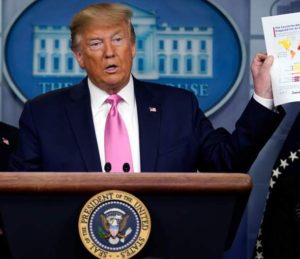
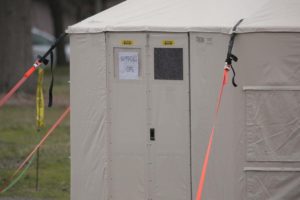
COVID-19: Public Health Experts Urge US Government To Ensure Scientifically Based Response Plan
A group of more than 450 public health experts recently urged government leaders to enact scientifically-informed policies to mitigate the effects of the Covid-19 coronavirus in the U.S. They called for fair and equitable imposition of such policies.
According to the ACLU, the experts’ recommendations, sent in a public letter, will help ensure a response plan that protects the health, safety, and civil liberties of all. It’s generally accepted that during a disease outbreak, individual rights may have to cede to give way to the greater good. But that is only if science supports the need for such measures, which may include isolation and quarantine.
In their letter, the public health experts ask officials, for example, to work with insurance companies to ensure that lack of insurance and high costs are not a barrier to testing and treatment. They call for health care facilities to be dubbed “immigration enforcement-free zones” — a step used before during hurricanes and other emergencies. And they seek extra help for under-resourced hospitals and community health centers.
Also impacted are minimum-wage workers and others who live on the economic margins, can’t telecommute, and can’t afford to lose their jobs. The experts also stress that leaders need to scrupulously ensure that their public messages are accurate and guided by science and not politics. In the past many responses to emergencies have been hindered by politics, including China’s response to the SARS coronavirus outbreak in 2003.
Guest – Jay Stanley, Senior Policy Analyst at the ACLU’s Speech, Privacy, and Technology Project at the ACLU in Washington, DC.
——————————

——————————






















